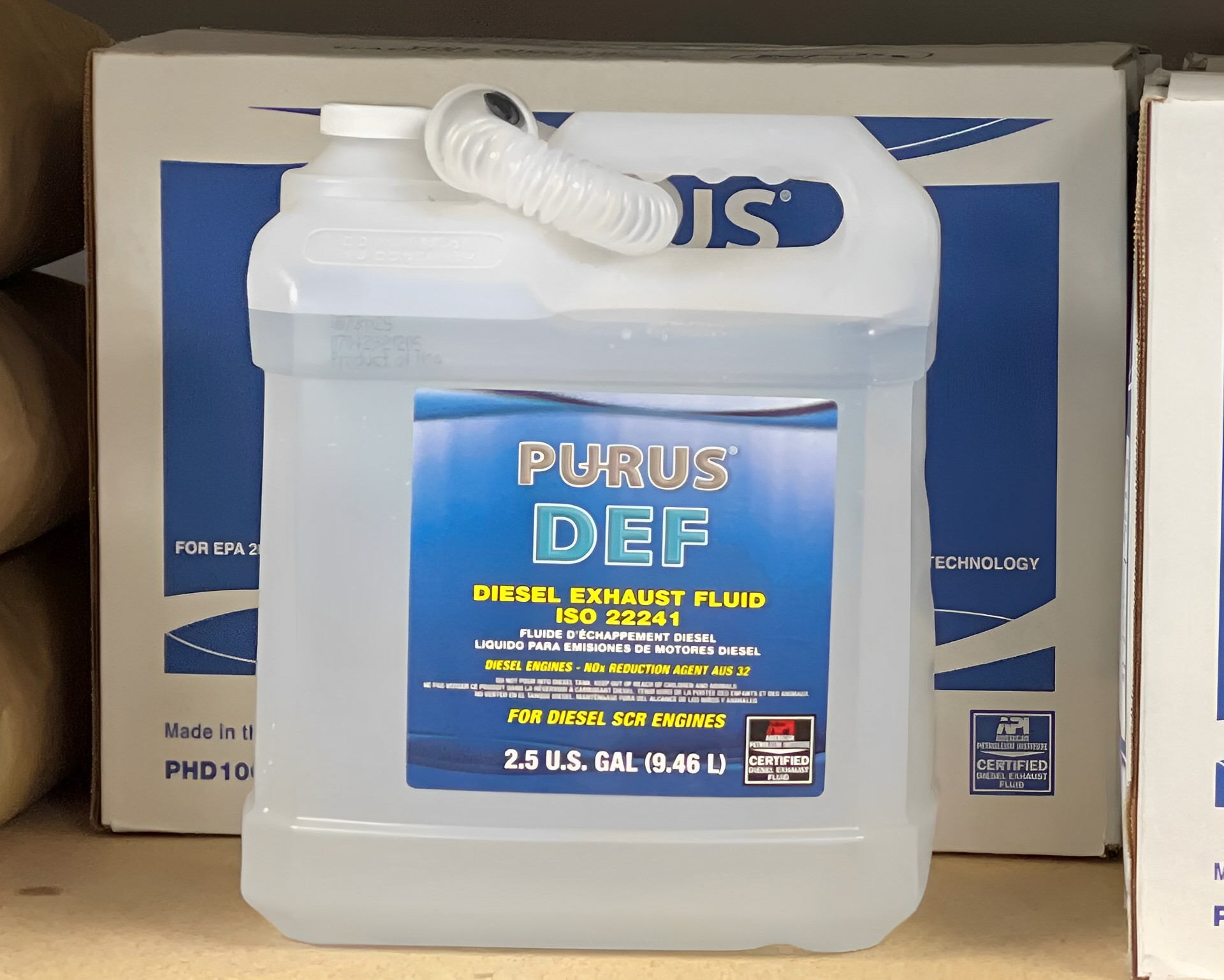

Articles
How To Store Def Fluid
Modified: December 7, 2023
Learn how to properly store DEF fluid with our informative articles. Protect your investment and ensure the longevity of your vehicle.
(Many of the links in this article redirect to a specific reviewed product. Your purchase of these products through affiliate links helps to generate commission for Storables.com, at no extra cost. Learn more)
Introduction
Welcome to this comprehensive guide on how to store DEF fluid! DEF, or Diesel Exhaust Fluid, is an essential component of selective catalytic reduction (SCR) systems in modern diesel engines. It helps reduce harmful emissions and ensures compliance with strict environmental regulations. Proper storage and handling of DEF fluid is crucial to maintain its quality and effectiveness.
In this article, we will discuss why proper storage is important for DEF fluid, the optimal location for storage, temperature considerations, container selection, handling and transportation guidelines, maintenance and inspections, as well as the proper disposal of DEF fluid. It is essential to follow these guidelines to ensure the longevity and performance of your DEF fluid, ultimately helping you maximize fuel efficiency and engine performance while reducing your environmental impact.
Proper storage of DEF fluid is necessary to maintain its purity and quality. Exposure to contaminants, extreme temperatures, and improper handling can lead to the degradation of DEF, reducing its effectiveness and potentially causing damage to SCR systems. By following the best practices outlined in this guide, you can effectively preserve the integrity of your DEF fluid and achieve optimal engine performance.
So, whether you are a fleet manager, a mechanic, or a diesel engine owner, read on to discover the essential tips and guidelines for storing DEF fluid. Let’s dive in!
Key Takeaways:
- Proper storage and handling of DEF fluid is crucial to maintain its purity, chemical stability, and effectiveness. By following best practices, you can protect the environment and optimize engine performance.
- Choosing the right storage location, container, and adhering to temperature guidelines are essential for preserving the integrity of DEF fluid. Proper disposal practices contribute to environmental sustainability and compliance with regulations.
Read more: What Is Low Washer Fluid
What is DEF Fluid?
DEF, or Diesel Exhaust Fluid, is a non-hazardous solution made up of 32.5% high-purity urea and 67.5% deionized water. It is a key component of SCR (Selective Catalytic Reduction) systems in modern diesel engines. DEF is injected into the exhaust stream, where it reacts with harmful nitrogen oxide (NOx) emissions to convert them into harmless nitrogen and water vapor.
The production and use of DEF fluid are mandated by government regulations to meet strict emissions standards. The urea in DEF fluid is made from natural gas or synthetic sources and is of a high-purity grade to ensure its effectiveness. The water used in DEF production undergoes a deionization process to remove impurities and minerals that could potentially contaminate the fluid or cause harm to the SCR system.
DEF fluid is clear and colorless, similar to water, and has a slight smell of ammonia. It is not a fuel additive and should never be mixed with diesel or any other fluid. DEF fluid is stored separately from diesel fuel, typically in its own dedicated tank, to prevent contamination and ensure its purity. Proper handling, storage, and transportation of DEF fluid are essential to maintain its quality and effectiveness.
One important aspect to remember about DEF fluid is that it can freeze at temperatures below 32°F (0°C). As a result, DEF fluid storage and handling require careful consideration of temperature conditions to prevent freezing or overheating, which can compromise its quality.
Overall, DEF fluid plays a crucial role in reducing harmful emissions from diesel engines while ensuring compliance with environmental regulations. By understanding its composition and importance, you can appreciate the significance of proper storage and handling practices to ensure the optimal performance of your SCR system.
Why Proper Storage is Important
Proper storage of DEF fluid is of utmost importance to maintain its quality, effectiveness, and longevity. Here are several key reasons why proper storage is crucial:
- Purity and Contamination Prevention: DEF fluid is highly sensitive to contamination. Exposure to impurities such as dust, dirt, debris, and other foreign substances can reduce the fluid’s effectiveness and potentially damage the SCR system. Proper storage minimizes the risk of contamination, ensuring that the DEF remains pure and free from any harmful substances.
- Chemical Stability: DEF fluid has a limited shelf life. It can degrade over time if not stored properly. Factors such as exposure to sunlight, high temperatures, and fluctuating humidity levels can accelerate the degradation process. By storing DEF in ideal conditions, you extend its lifespan and ensure that it maintains its chemical stability for optimal performance.
- Freezing and Thawing: DEF fluid can freeze at temperatures below 32°F (0°C). When frozen, it expands and can damage storage containers or equipment. Additionally, frozen DEF cannot be effectively used until thawed. Proper storage ensures that DEF fluid is kept at the appropriate temperature to prevent freezing and maintain its usability.
- Overheating Prevention: DEF fluid is also sensitive to extreme heat. If exposed to high temperatures, it can degrade, leading to the formation of ammonia gas and other harmful byproducts. Proper storage in a cool and controlled environment helps prevent overheating and protects the integrity of the DEF fluid.
- Compliance with Regulations: Government regulations mandate the use of DEF fluid in diesel engines to meet emission standards. By storing DEF properly, you ensure compliance with these regulations and avoid penalties or fines for non-compliance.
By understanding the importance of proper storage, you can protect the quality and effectiveness of your DEF fluid. This, in turn, helps maximize the performance of your SCR system, reduce emissions, and ensure compliance with environmental regulations. In the next sections, we will delve into the various aspects of DEF fluid storage, including the ideal location, temperature considerations, container selection, handling, transportation, maintenance, and proper disposal.
The Location for DEF Fluid Storage
When it comes to storing DEF (Diesel Exhaust Fluid), selecting the proper location is vital to ensure the quality and effectiveness of the fluid. Here are some key considerations for choosing the optimal storage location:
- Indoor vs. Outdoor: Whenever possible, store DEF indoors to protect it from exposure to sunlight, extreme temperatures, and environmental contaminants. Indoor storage helps maintain a consistent temperature and reduces the risk of contamination, ensuring that the fluid remains pure and effective.
- Avoid UV Exposure: UV rays from sunlight can degrade DEF fluid. If outdoor storage is unavoidable, ensure the storage area is shaded or covered to minimize UV exposure. Consider using UV-resistant tanks or containers to provide an added layer of protection.
- Well-Ventilated Area: Whether indoor or outdoor, choose a well-ventilated storage area to minimize the buildup of fumes and odors. Adequate ventilation helps maintain the integrity of the fluid and provides a safe environment for handling and storage.
- Secure and Protected: Ensure that the storage location is secure and protected from unauthorized access. This helps prevent tampering, theft, or contamination of the DEF fluid.
- Separation from Fuel and Chemicals: It is crucial to keep DEF fluid separate from diesel fuel, gasoline, and other chemicals. Store DEF in its dedicated tank or container, away from any potentially hazardous substances. This minimizes the risk of contamination and ensures the purity of the fluid.
- Accessibility: Consider the ease of access when selecting a storage location. It should be conveniently located for refilling equipment or vehicles without causing any disruptions to daily operations.
By carefully choosing the location for DEF fluid storage, you can safeguard its quality and effectiveness. Keep in mind that maintaining a consistent temperature, protecting against UV exposure, ensuring proper ventilation, and separating it from fuel and chemicals are key factors in preserving the integrity of DEF fluid. In the next section, we will explore temperature considerations for DEF fluid storage.
Temperature Considerations
Proper temperature control is crucial when it comes to storing DEF (Diesel Exhaust Fluid). Extremes in temperature can affect the quality and performance of the fluid. Here are some key temperature considerations to keep in mind:
- Freezing Point: DEF fluid has a freezing point of 12°F (-11°C). When frozen, DEF expands, potentially damaging storage containers and equipment. It is important to store DEF in a location where the temperature stays above the freezing point to avoid freezing. If DEF does freeze, it will remain usable once thawed, although the fluid may lose some of its effectiveness.
- Optimal Storage Temperature: The ideal temperature for storing DEF is between 32°F (0°C) and 86°F (30°C). Keeping DEF within this temperature range helps maintain its chemical stability and effectiveness. Extreme heat or cold can degrade the fluid and reduce its shelf life.
- Avoid High Temperatures: It is crucial to prevent DEF from being exposed to high temperatures. Temperatures above 86°F (30°C) can cause the fluid to break down and form ammonia gas, rendering it less effective. Storing DEF in a cool and controlled environment helps minimize the risk of overheating and ensures the longevity of the fluid.
- Temperature Monitoring: Consider implementing temperature monitoring systems to ensure that the storage environment remains within the acceptable temperature range. Monitoring can help identify any temperature fluctuations and allow for prompt action to maintain the integrity of the DEF fluid.
- Seasonal Considerations: In regions with extreme temperature variations throughout the year, it is important to adjust storage methods accordingly. If storing DEF outside during winter, make sure it is protected from freezing by using insulated containers or applying heating methods to keep the temperature above freezing. During summer, take precautions to prevent overheating and exposure to direct sunlight.
By understanding the impact of temperature on DEF fluid, you can take the necessary steps to ensure proper storage. Maintaining a consistent temperature within the recommended range, protecting against freezing and overheating, and implementing temperature monitoring systems are crucial for ensuring the quality and effectiveness of DEF fluid. In the next section, we will discuss container selection for DEF fluid storage.
Store DEF fluid in a cool, dry place away from direct sunlight and extreme temperatures. Keep it in its original sealed container and avoid transferring it to other containers to prevent contamination.
Read more: Where To Buy Windshield Washer Fluid
Container Selection
Choosing the right container for storing DEF (Diesel Exhaust Fluid) is essential to ensure the integrity and effectiveness of the fluid. Here are some key factors to consider when selecting a container for DEF storage:
- Material: The container material should be compatible with DEF. High-density polyethylene (HDPE) is the most commonly used material for DEF containers due to its resistance to corrosion and compatibility with DEF. It is important to avoid containers made of materials such as aluminum, brass, or copper, as DEF can react with them and cause contamination.
- Sealability: A good DEF container should have a reliable and tight-sealing mechanism to prevent leakage and ingress of contaminants. Look for containers with secure caps, gaskets, or seals to maintain the purity and quality of the DEF fluid.
- UV Resistance: If storing DEF outdoors is necessary, choose containers that are UV resistant. UV rays from sunlight can degrade DEF fluid, so using UV-resistant containers can help protect the integrity of the fluid and maintain its effectiveness.
- Size and Capacity: Consider the storage needs of your specific application when determining the size and capacity of the DEF container. It should be able to accommodate an adequate quantity of DEF to avoid frequent refilling and ensure a continuous supply. However, it’s important not to store DEF for an extended period beyond its shelf life to maintain its effectiveness.
- Dispensing Mechanism: If you need to dispense DEF fluid from the container, choose a container that is equipped with a user-friendly dispensing mechanism. This can include a built-in spout, pump, or nozzle for easy and controlled pouring of DEF fluid.
- Labeling: Look for containers that are specifically labeled for DEF storage. Clear and accurate labeling helps prevent confusion and ensures that the container is dedicated solely for DEF, reducing the risk of cross-contamination.
By considering these factors, you can select an appropriate container that meets the requirements for DEF fluid storage. Investing in high-quality, compatible containers will help maintain the purity and effectiveness of DEF, ensuring optimal performance and compliance with environmental regulations. In the next section, we will discuss guidelines for the handling and transportation of DEF fluid.
Handling and Transportation
Proper handling and transportation are crucial when it comes to DEF (Diesel Exhaust Fluid). Following these guidelines ensures the integrity and effectiveness of the fluid throughout the process. Here are some key recommendations for handling and transporting DEF:
- Use Clean Equipment: When handling DEF, use clean equipment specifically designated for DEF to prevent contamination. Ensure that containers, pumps, funnels, and other tools used for DEF are clean and free from any residue or contaminants.
- Avoid Direct Contact: Avoid direct contact between DEF and non-compatible materials, such as oil, fuels, solvents, and other chemicals. If accidental contact occurs, immediately rinse the area with water to minimize the risk of contamination.
- Prevent Spills and Leakage: Take care to prevent spills and leakage when transferring or storing DEF. Secure containers properly to prevent accidental tipping or leaking. Use funnels or dispensing mechanisms that fit securely into DEF containers to minimize the risk of spills and contamination.
- Protect from Cross-Contamination: DEF should not be co-mingled with any other fluid, including diesel fuel. Ensure that DEF storage containers, tanks, and dispensing nozzles are dedicated solely for DEF use to prevent cross-contamination. Labeling containers and equipment clearly helps minimize the risk of accidental mixing.
- Adhere to Temperature Guidelines: Maintain the recommended temperature range of 32°F (0°C) to 86°F (30°C) during transportation and handling. Extreme temperatures can affect the quality and effectiveness of DEF. If DEF has been exposed to freezing temperatures, allow it to thaw completely before use.
- Secure during Transportation: When transporting DEF, secure containers properly to prevent movement and potential damage. Ensure that DEF containers are designed for transportation and compliant with applicable regulations, such as DOT (Department of Transportation) requirements if applicable in your region.
By following these guidelines for handling and transportation, you can ensure the purity and effectiveness of DEF fluid. Proper handling techniques, prevention of cross-contamination, and adherence to temperature guidelines help maintain the quality of the DEF and promote optimal performance of your SCR systems. In the next section, we will discuss the importance of maintenance and inspections for DEF fluid storage.
Maintenance and Inspections
Maintaining and inspecting DEF (Diesel Exhaust Fluid) storage is essential to ensure the quality and effectiveness of the fluid. Regular maintenance and inspections help identify and address any issues that could potentially compromise the storage environment or the integrity of the DEF. Here are some key considerations for maintaining and inspecting DEF fluid storage:
- Regular Cleaning: Clean storage containers, tanks, and dispensing equipment regularly to prevent the buildup of contaminants or residue. Use mild soap or DEF-approved cleaning agents and thoroughly rinse with water before refilling with DEF. This helps maintain the purity of the fluid and prevents contamination.
- Check for Contamination: Regularly inspect DEF storage containers and tanks for any signs of contamination. Look for discoloration, unusual odors, or solids that may indicate contamination. If any contamination is detected, proper cleaning and disposal procedures should be followed, and the source of contamination should be identified and addressed.
- Verify DEF Quality: Periodically conduct tests to verify the quality of DEF fluid. Use DEF test kits or send samples to laboratories for analysis. Testing can help identify any degradation or contamination in the DEF, allowing for timely action to rectify the issue.
- Monitor Temperature: Continuously monitor the temperature in the storage area to ensure it remains within the recommended range. Implement temperature monitoring systems and alarms to provide real-time information and allow for prompt adjustments if the temperature fluctuates outside the acceptable limits.
- Inspect Equipment: Regularly inspect dispensing equipment, pumps, hoses, and nozzles for any signs of wear or damage. Replace or repair any faulty or damaged equipment to prevent leaks, spills, or cross-contamination during DEF dispensing and storage.
- Train Personnel: Ensure that personnel responsible for handling and maintaining DEF fluid storage are properly trained. Provide them with comprehensive training on proper storage practices, handling techniques, and emergency protocols. Regular training and refresher courses will help ensure that everyone is up-to-date on best practices and safety procedures.
By regularly maintaining and inspecting DEF fluid storage, you can identify and address any issues promptly, ensuring the quality and effectiveness of the fluid. Regular cleaning, checking for contamination, monitoring temperature, inspecting equipment, and providing training to personnel all contribute to maintaining a safe and efficient storage environment. In the next section, we will discuss the proper disposal of DEF fluid.
Proper Disposal of DEF Fluid
When it comes to the end of its shelf life or if DEF (Diesel Exhaust Fluid) becomes contaminated, it is important to follow proper disposal practices to minimize environmental impact. Here are some guidelines for the proper disposal of DEF fluid:
- Unused and Uncontaminated DEF: If there is unused and uncontaminated DEF that has not reached its expiration date, it can be reused or donated to someone who can use it. Ensure that the DEF is properly sealed and stored according to the recommended guidelines until a suitable recipient is found.
- Expired or Contaminated DEF: If DEF has reached its expiration date or becomes contaminated, it should be considered as waste and disposed of properly. Do not mix DEF with other fluids or pour it down drains, sewers, or stormwater systems.
- Follow Local Regulations: Check with local environmental agencies or waste management authorities for specific guidelines on disposal in your area. Local regulations may dictate specific disposal methods or designated collection centers for DEF fluid and other hazardous or non-hazardous waste.
- Recycling or Disposal Facilities: Contact recycling or hazardous waste disposal facilities in your area to inquire if they accept DEF for proper disposal or recycling. These facilities have the expertise and resources to handle DEF and ensure its proper treatment or recycling.
- Professional Disposal Services: If you are unsure about the proper disposal methods or are dealing with a large quantity of contaminated DEF, consider hiring professional waste disposal services. These services specialize in the proper disposal of hazardous materials and can handle DEF in compliance with environmental regulations.
- Document Disposal: Keep records of your disposal activities, including dates, quantities, and disposal methods. This documentation helps demonstrate compliance with regulations and ensures proper tracking of waste from cradle to grave.
It is crucial to prioritize environmental responsibility when disposing of DEF fluid. By following the appropriate disposal guidelines, you can minimize the impact on the environment and adhere to local regulations. Proper disposal practices contribute to the overall sustainability and environmental stewardship in the handling of DEF. Finally, let’s conclude this guide on storing DEF fluid.
Read more: How To Drain Windshield Washer Fluid
Conclusion
Proper storage of DEF (Diesel Exhaust Fluid) is essential for maintaining its quality, effectiveness, and longevity. By following the guidelines outlined in this comprehensive guide, you can ensure optimal performance and compliance with environmental regulations.
We started by understanding what DEF fluid is – a non-hazardous solution made up of urea and deionized water that helps reduce harmful emissions. We then discussed why proper storage is important, highlighting the need to maintain purity, chemical stability, and protect against freezing and overheating.
The location for DEF fluid storage is another crucial consideration. Storing DEF indoors, protecting it from UV exposure, ensuring proper ventilation, and separating it from fuel and chemicals are all important factors to keep in mind.
Temperature considerations are vital in maintaining the quality of DEF fluid. Avoiding freezing, storing DEF within the recommended temperature range, and preventing exposure to extreme heat are key to preserving its effectiveness.
Choosing the right container for DEF storage is crucial. Select containers made of compatible materials, ensure they are well-sealed, and consider UV resistance for outdoor storage.
Proper handling and transportation of DEF involve using clean equipment, preventing spills and leakage, preventing cross-contamination, and closely monitoring temperature during transport.
Maintenance and inspections are essential for ensuring the quality of DEF fluid. Regular cleaning, checking for contamination, verifying DEF quality, and inspecting equipment contribute to maintaining the integrity of DEF storage.
When it comes to disposal, it is important to follow local regulations. Unused and uncontaminated DEF can be reused or donated, while expired or contaminated DEF should be properly disposed of at recycling or hazardous waste facilities.
Remember, by investing time and effort into proper storage, handling, and disposal of DEF fluid, you contribute to optimizing engine performance, reducing emissions, and protecting the environment.
Thank you for reading this comprehensive guide on how to store DEF fluid. By following these guidelines, you can ensure the longevity and effectiveness of DEF while complying with environmental regulations. Stay committed to responsible DEF fluid management, and enjoy the benefits of cleaner emissions and improved engine performance.
Frequently Asked Questions about How To Store Def Fluid
Was this page helpful?
At Storables.com, we guarantee accurate and reliable information. Our content, validated by Expert Board Contributors, is crafted following stringent Editorial Policies. We're committed to providing you with well-researched, expert-backed insights for all your informational needs.

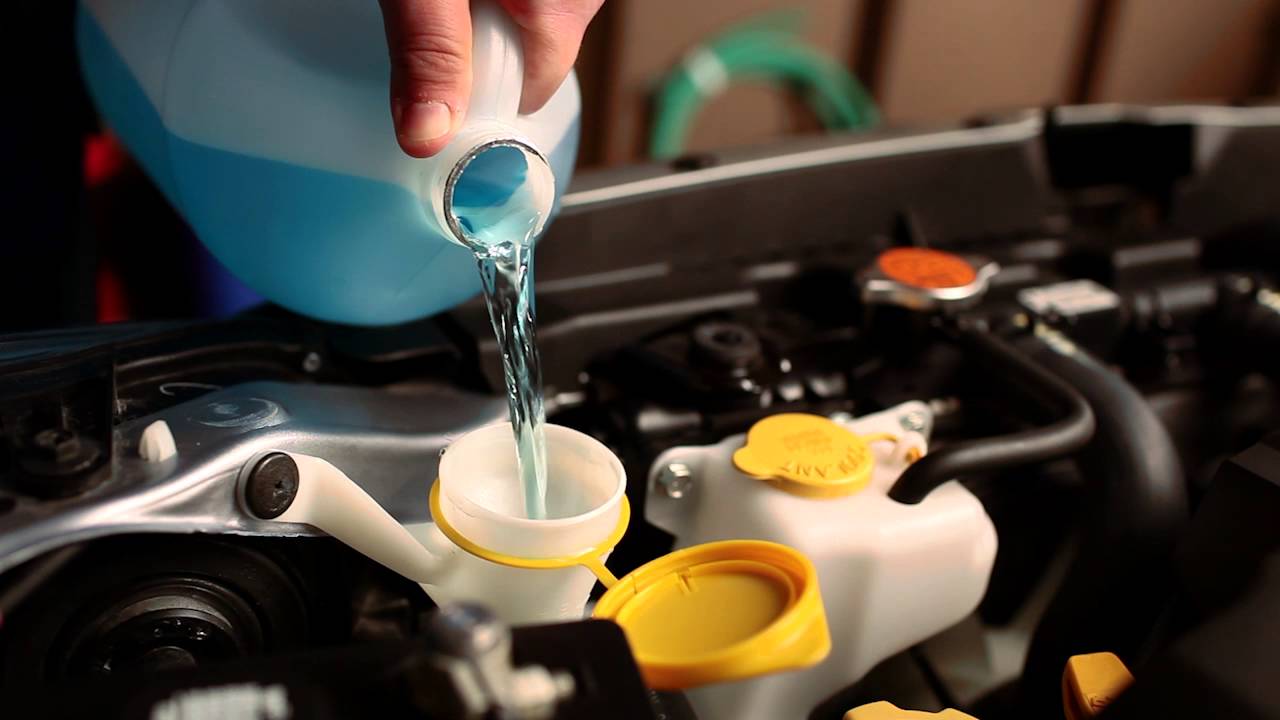
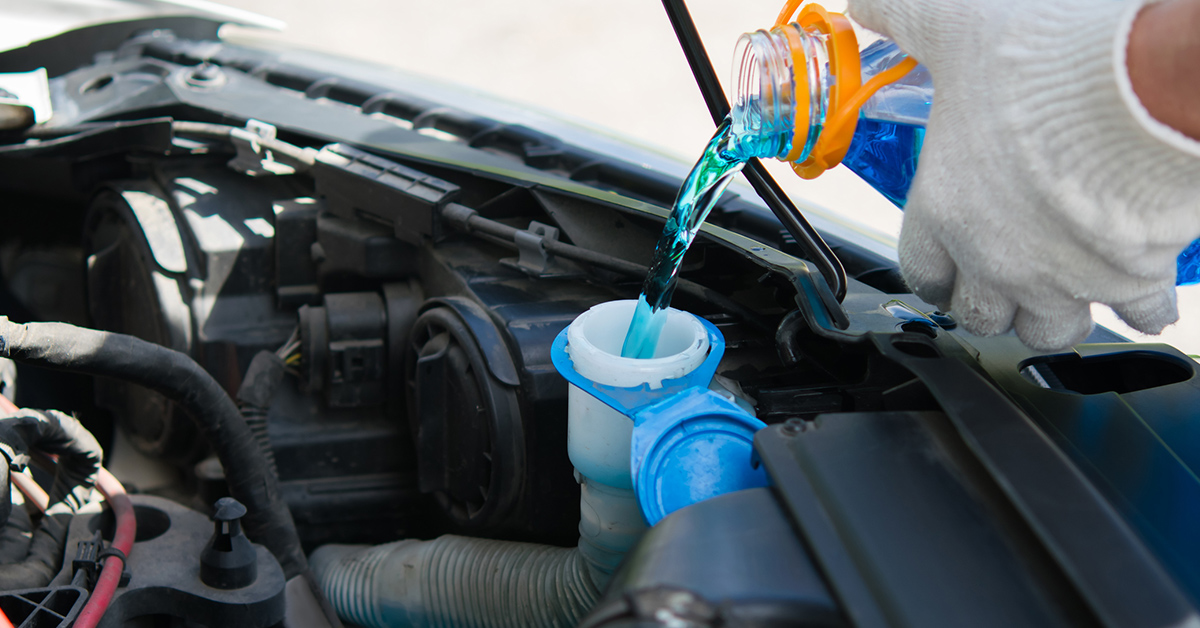
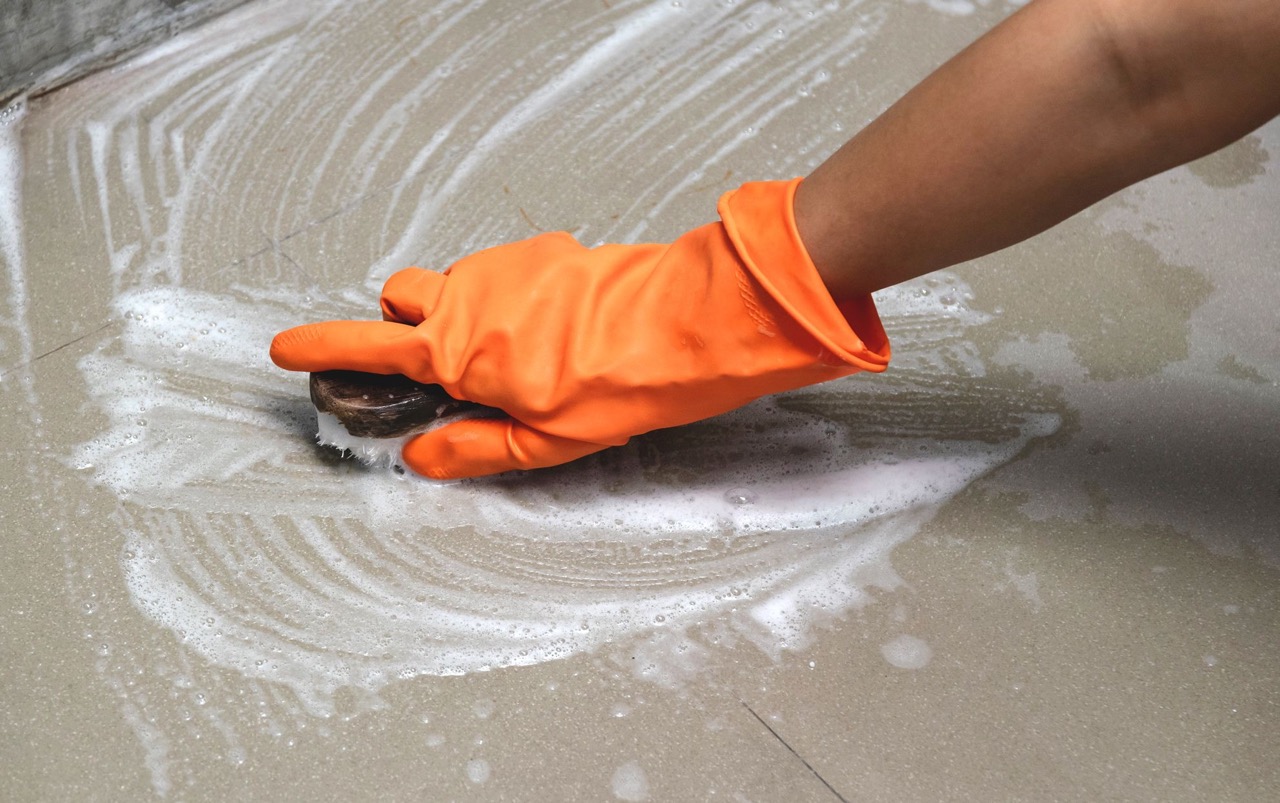
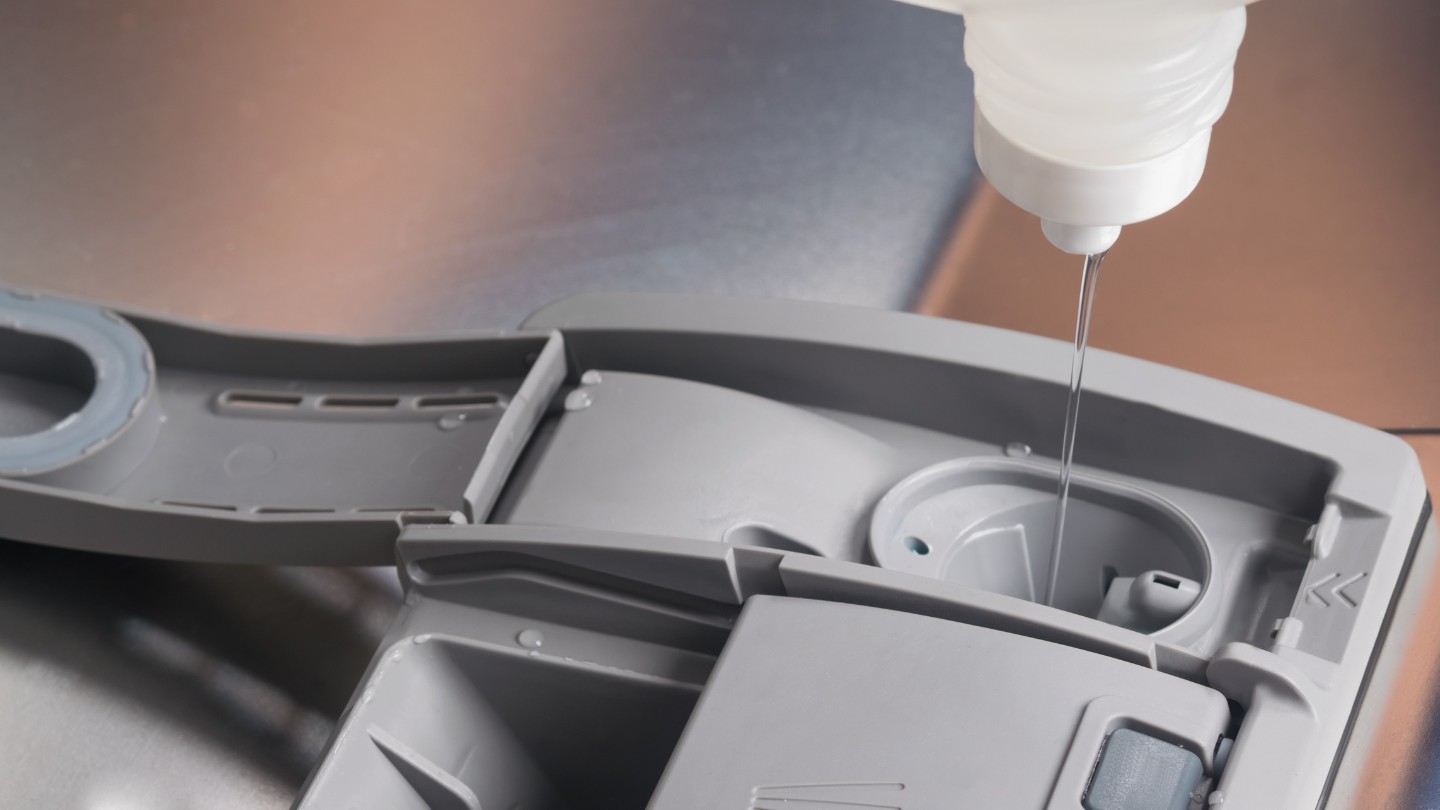

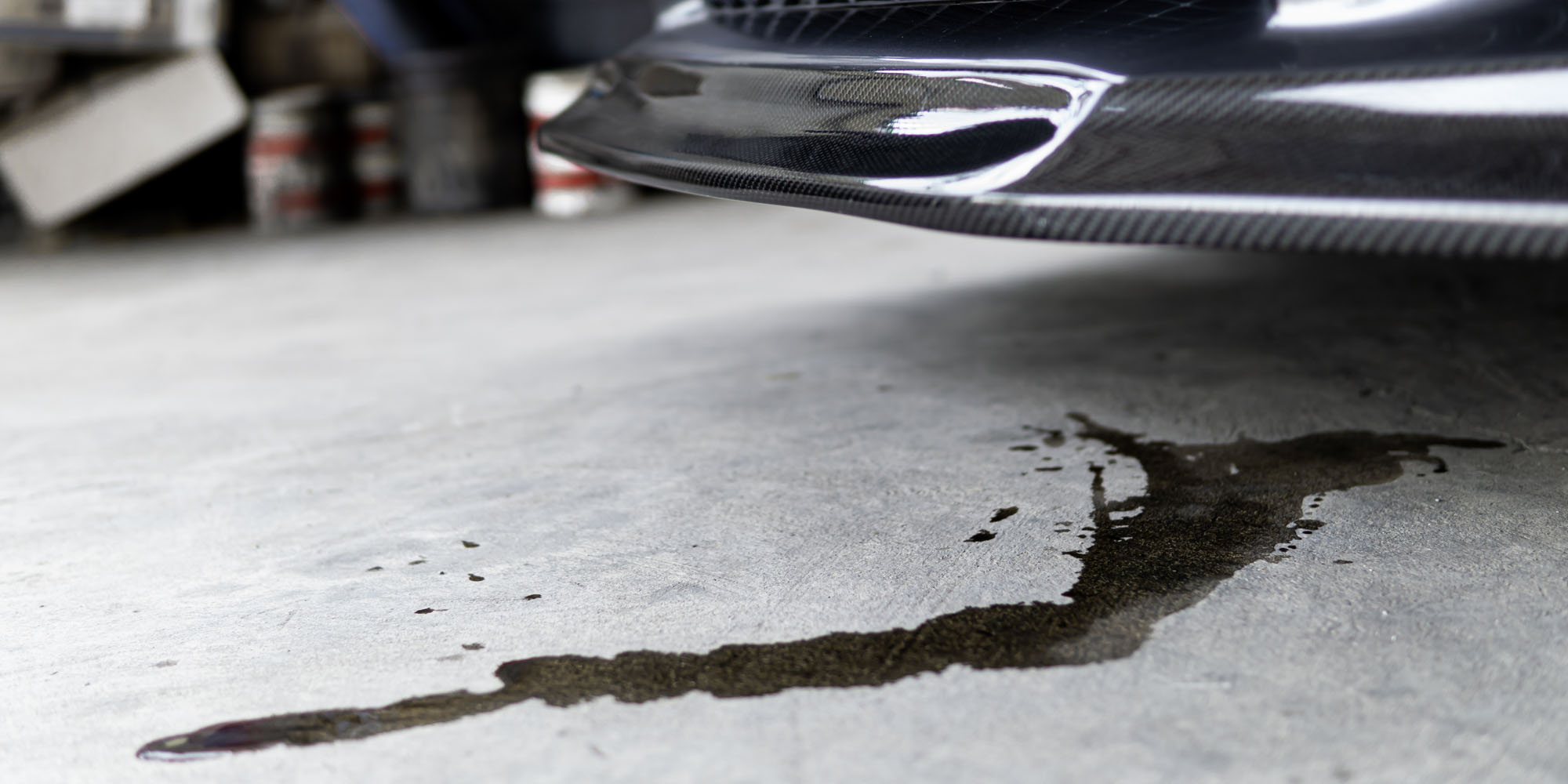
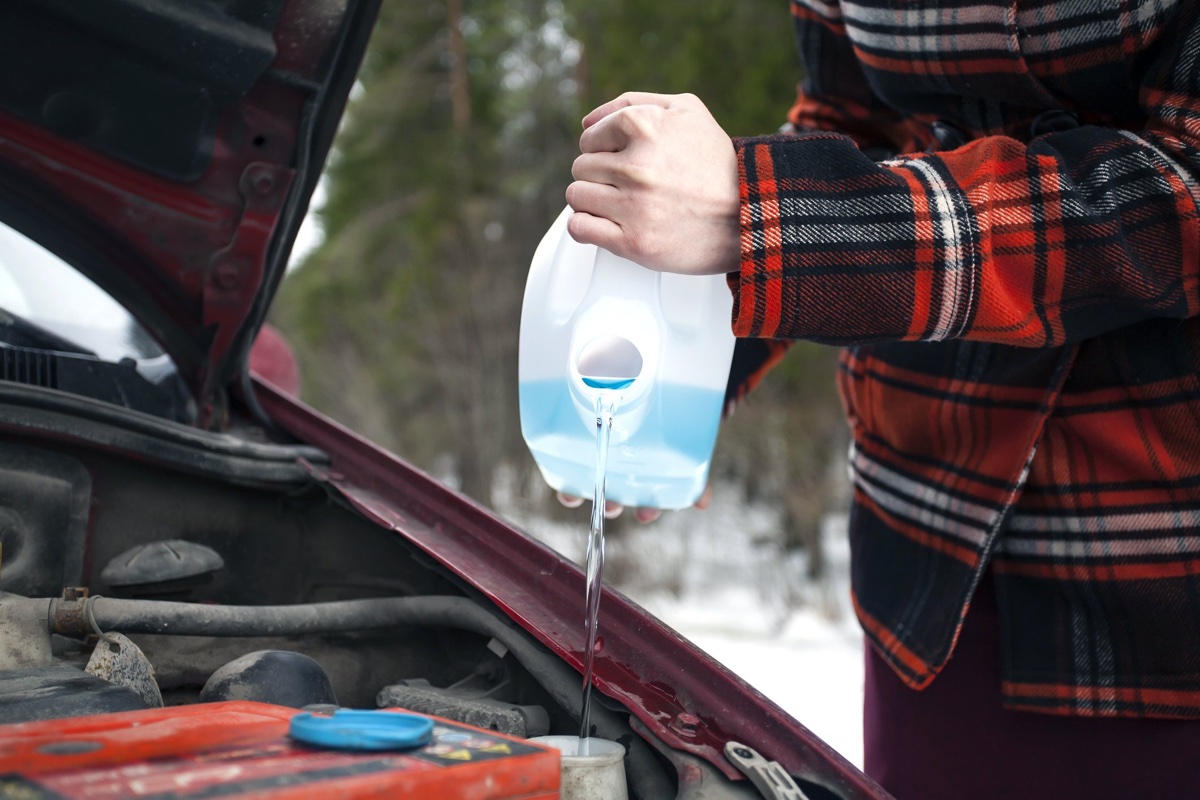

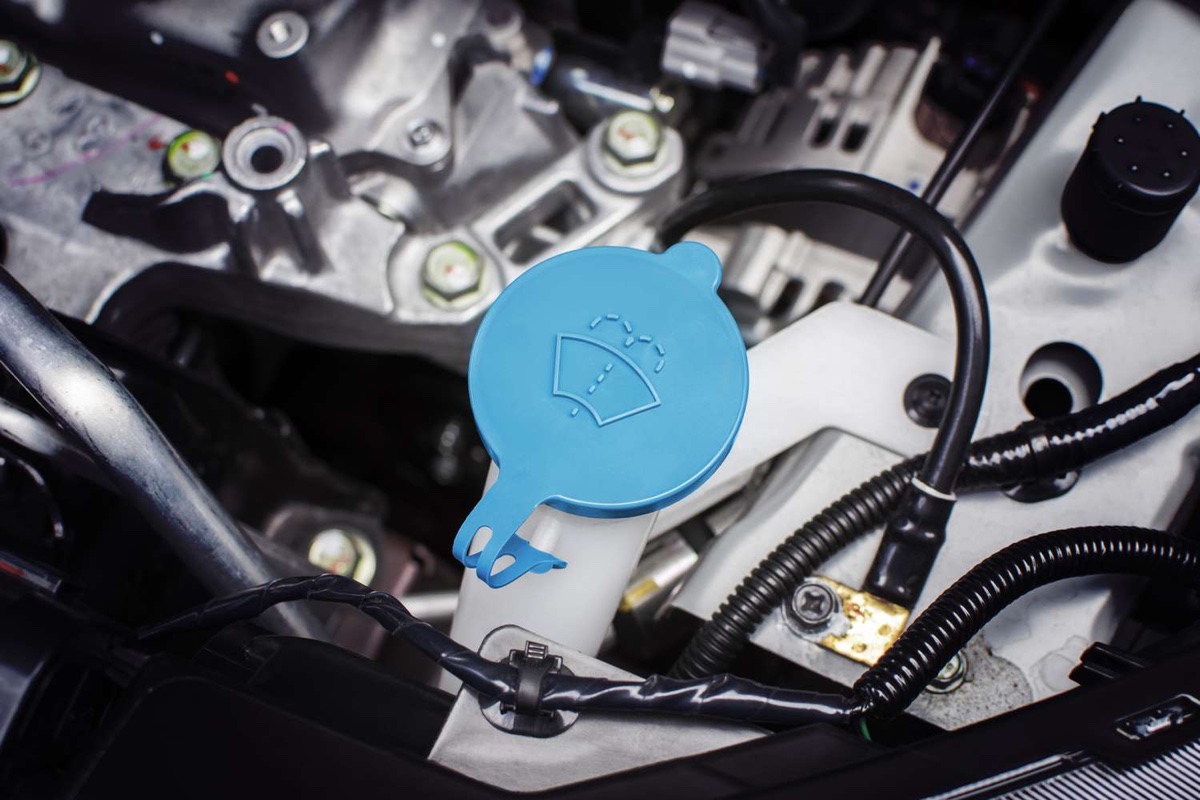
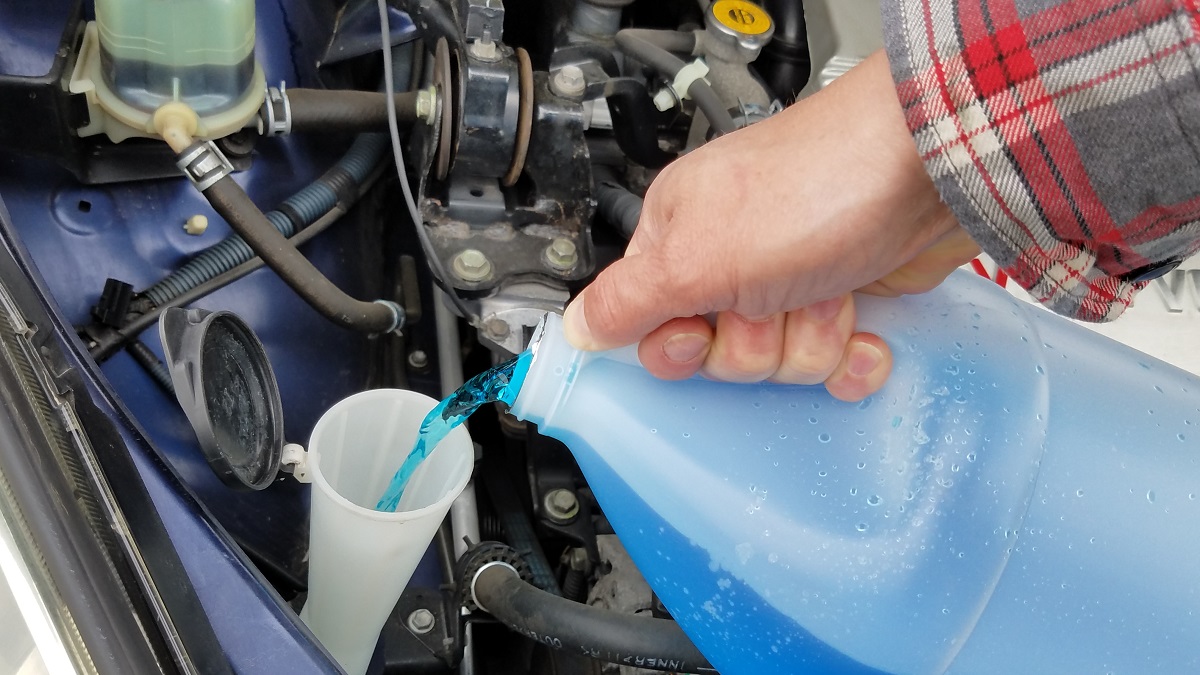



0 thoughts on “How To Store Def Fluid”